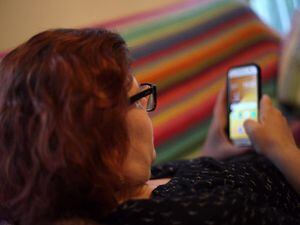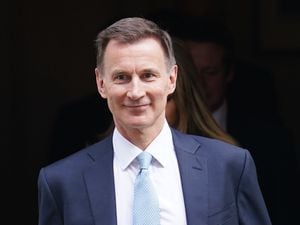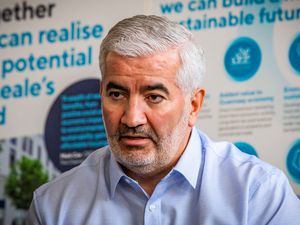Consumer credit – cure or curse for modern world?
William Mason, director general of the Guernsey Financial Services Commission, reflects on the regulation of consumer credit – and the purchasing power of the mobile devices we carry with us

THE States of Guernsey passed a policy letter setting out a framework for the regulation of consumer credit at the beginning of this year. Since then, the Guernsey Financial Services Commission has been consulting with interested parties as to how the intended new law should work in practice. We anticipate further consultations on the rules beneath the law in 2022 but I thought it might be interesting to offer a few reflections on how the purchasing tools we carry around with us or which reside in our fingerprints, keystrokes or facial features may have an impact on how we regard money.
I don’t know about you but when I used to have to take coins out of my pocket or notes out of my wallet, spending them hurt. I remembered how many hours I had had to work picking tomatoes in a greenhouse to earn the money which I was now spending. I remember my father taking out a couple of hundred pounds from the cash point and managing his spending to some degree on the basis of how much cash was in his wallet. Rolling forward about three decades to late 2021 and the situation is somewhat different. The evolution of technology has made it much easier to spend money without it feeling anything like so painful:
n No longer do you have to pause over a terminal to key in your pin number or (remember this?) actually sign your name to agree to a transaction. Now one taps one’s card, phone or iWatch against a terminal and your money is effortlessly transferred to the vendor. How many of us now just wave the card or phone in the direction of the terminal pushed towards us by a sales assistant who, in a Covid-conscious fashion, keeps hold of the terminal and doesn’t even turn the terminal towards us so we can see how much we are spending. Our Covid-compliant culture combined with natural politeness inhibits us from saying: ‘Please show me how much I’m paying.’
n In terms of online shopping, how many of us are drawn by convenience to pay through PayPal or one of the other online payment mechanisms which mean we don’t even have to go to the trouble of finding our physical wallets and persuading our smart phone cameras to take an accurate photo of our debit card numbers? More recently, I’ve noticed that these payment providers are now seeking to upsell you credit almost every time you use them – ‘don’t feel like paying £100 now? Just press this button and spread the payments over several months’ etc.
Then there is the issue of interest rates. While margins on consumer lending still mean that the cost of unsecured credit is markedly more than the 0.1% at which the Bank of England has set base rates since early 2020, only this month voting to push up the rate to 0.25%, the quite correct popular perception is that there has never been a cheaper time to live off money you have yet to earn or otherwise legitimately acquire. The forward guidance offered by both the European Central Bank and the Bank of England that any increases in the rate of interest will be very gradual – guidance which the new chief economist of the Bank has interestingly just disowned – has also perhaps contributed to the popular perception that money is going to remain so cheap that a bit more debt doesn’t matter.
The vast money printing machine otherwise known as quantitative easing has perhaps created the impression for many that money is not perhaps what it once was. Thus, perhaps people question the old advice passed down from parents and grandparents about the unwisdom of borrowing for most things.
What does this mean? To be transparent, I don’t know but it is the role of a regulator to be a professional worrier, to scout around the back of new things while others lap them up less questioningly as life-improving innovations. What I’d observe is that it appears it is easier than it has ever been for an ordinary working person who otherwise manages his or her life sensibly and responsibly to find themselves acquiring debt because the things which naturally used to constrain one’s spending – like finding no money in one’s physical wallet – have disappeared to a very large degree.

This has happened during a time in which the very notion of what money is has perhaps been challenged as rarely before given the vast and inflationary monetary expansion we have seen to carry us through the Covid restrictions era. Do I have much data to support my thesis yet? No – and by the time we do, it may well be too late to do much about it.
Do I worry that Guernsey’s helpful habits of thrift are likely to be entirely thrown to the wind by the cheapness of debt and the advances in spending and borrowing technologies? Not entirely. At the margin, however, I worry about hard-pressed families and individuals both here and in the UK who are being given ever more tools to live beyond their means with the perception that there may be a reckoning for such overconsumption dulled by Covid and inflationary fogs.
Do I offer more regulation as a magic cure? Certainly not. The concept of caveat emptor – buyer beware – needs to remain alive and well if we are to be able to remain a free citizenry able to make our own choices about how we wish to live our lives.
The credit and finance legislation we are working on will do something to offer consumers transparent information about the costs of the debts they are taking on and may constrain the most usurious lending rates, but it will not make it appreciably more difficult to spend money given the societal and technological revolution I outline above.
Perhaps, more than ever, we need to look to ourselves and continue to remind ourselves and those around us that money has not suddenly become a free good if we are not to rue the consequences in years to come.





